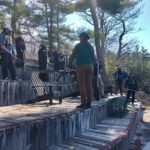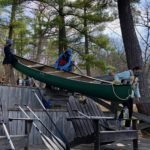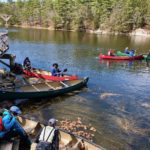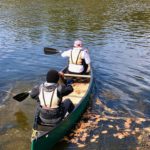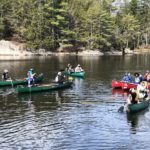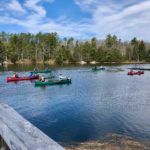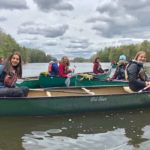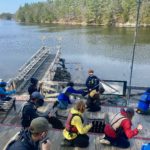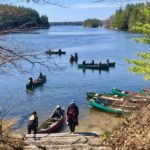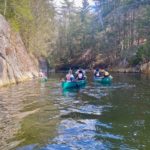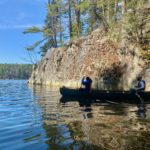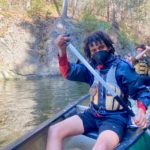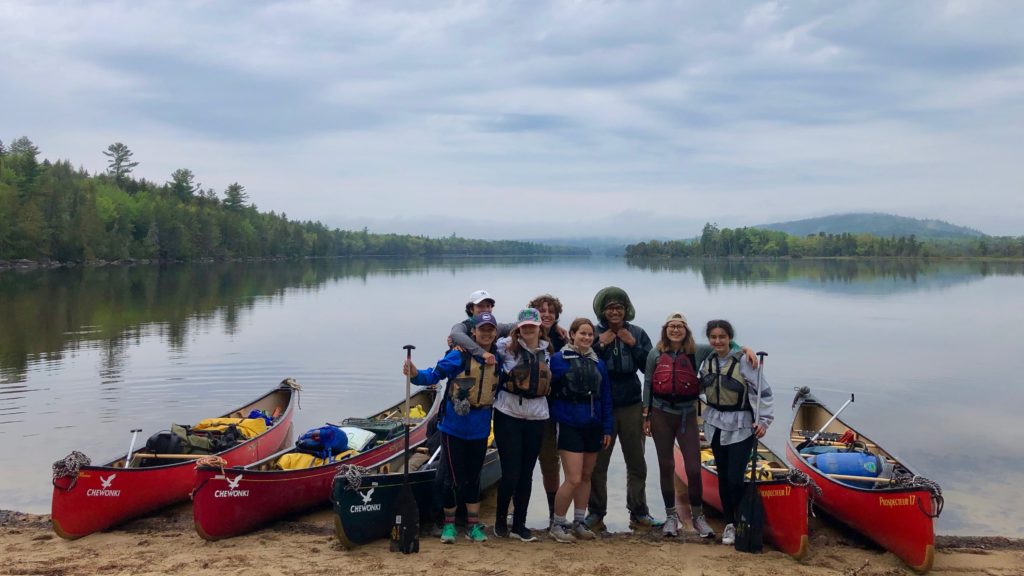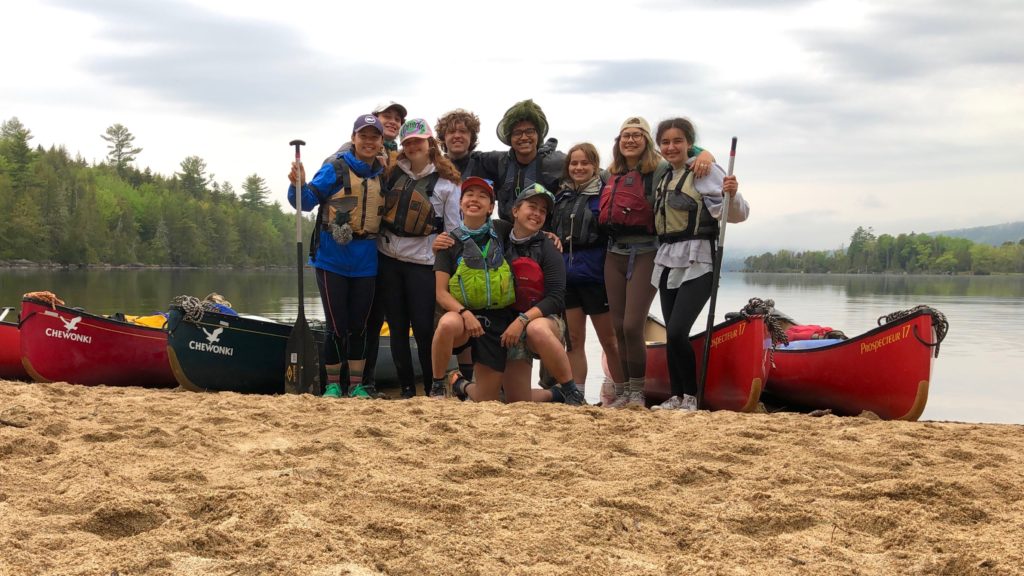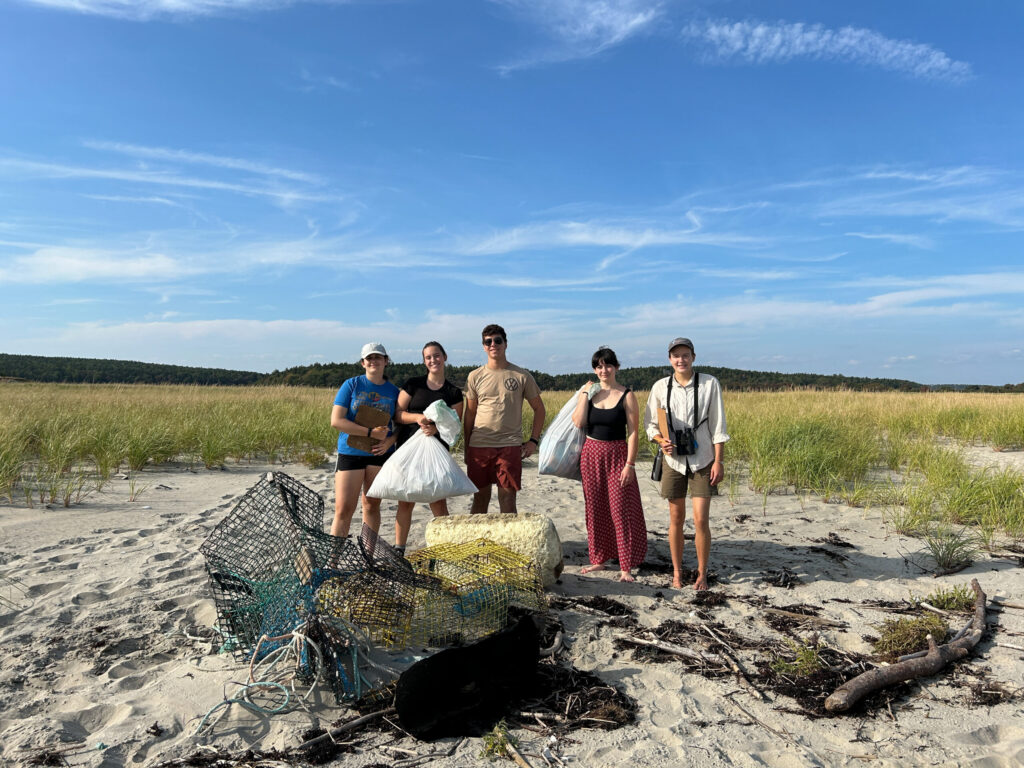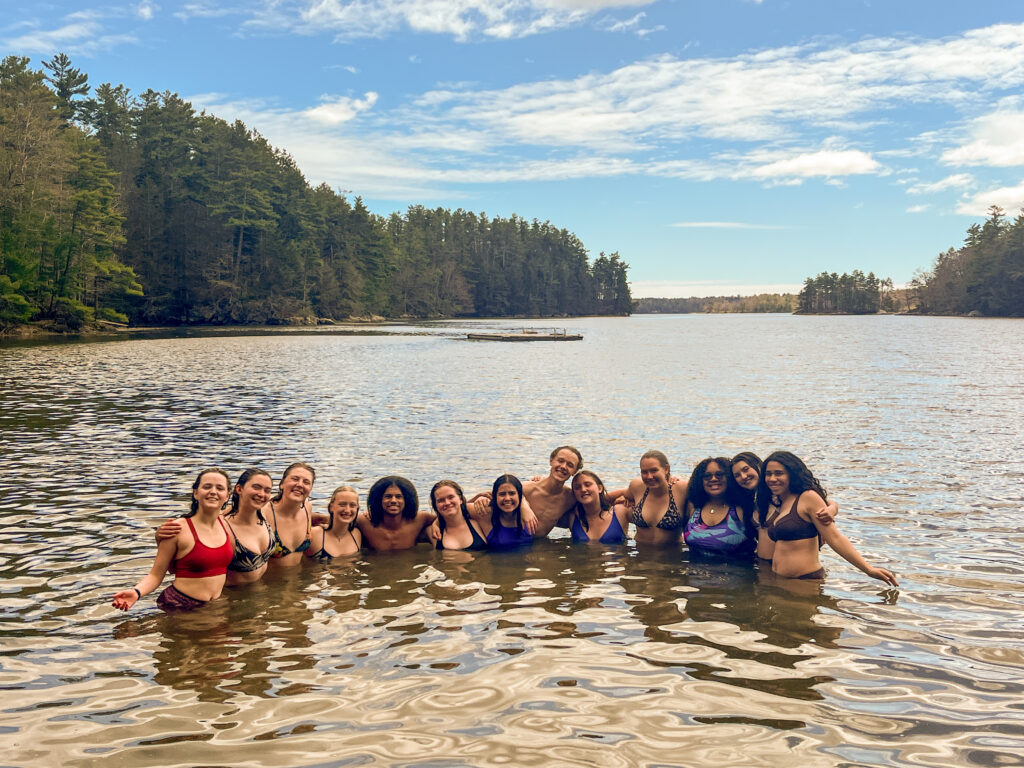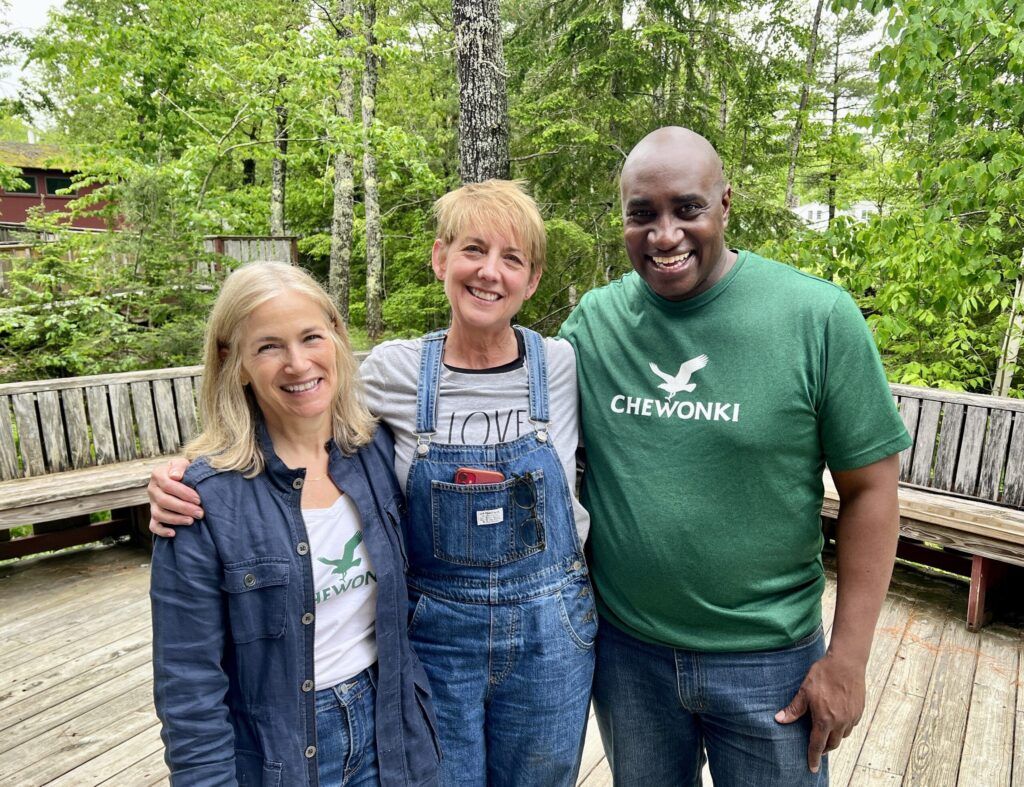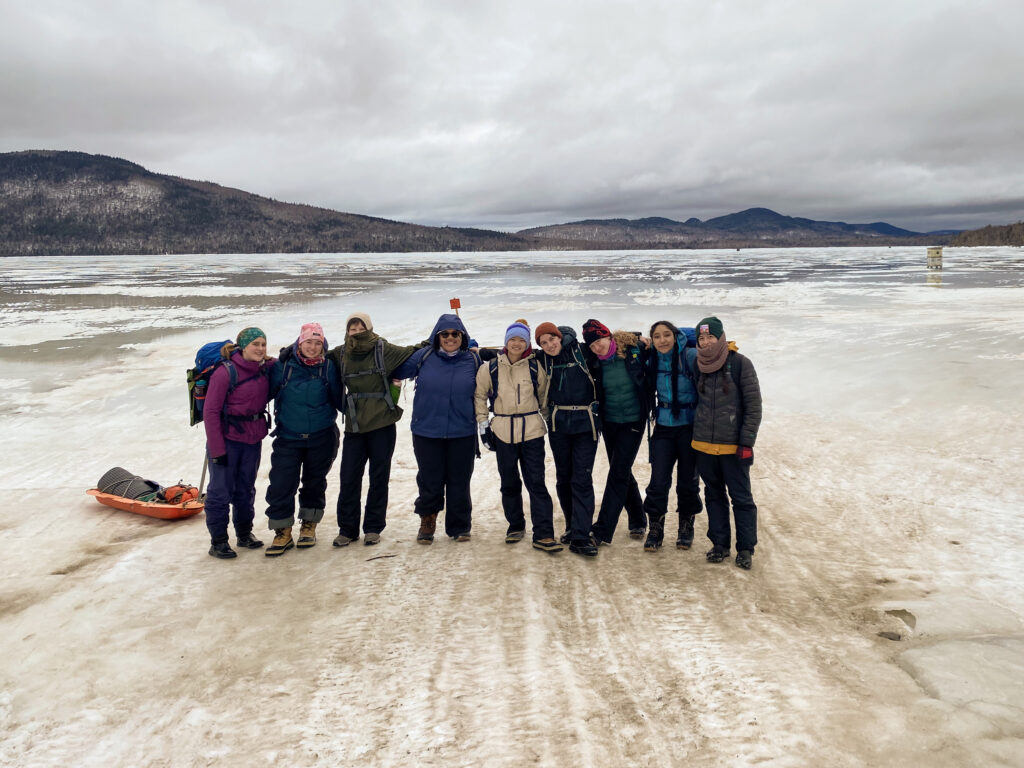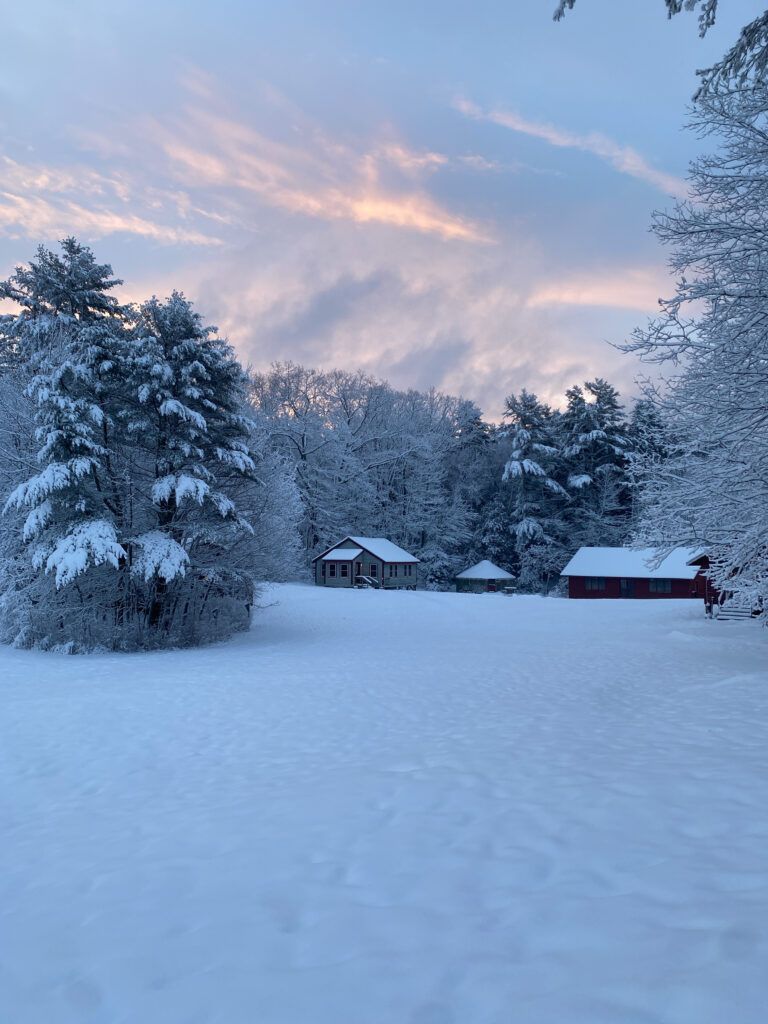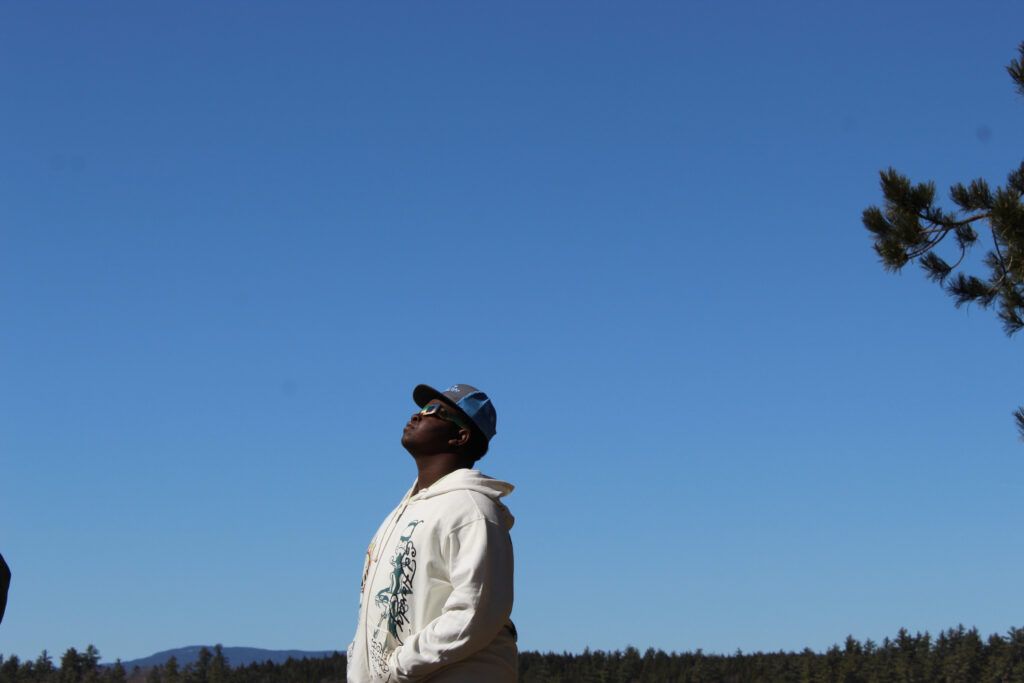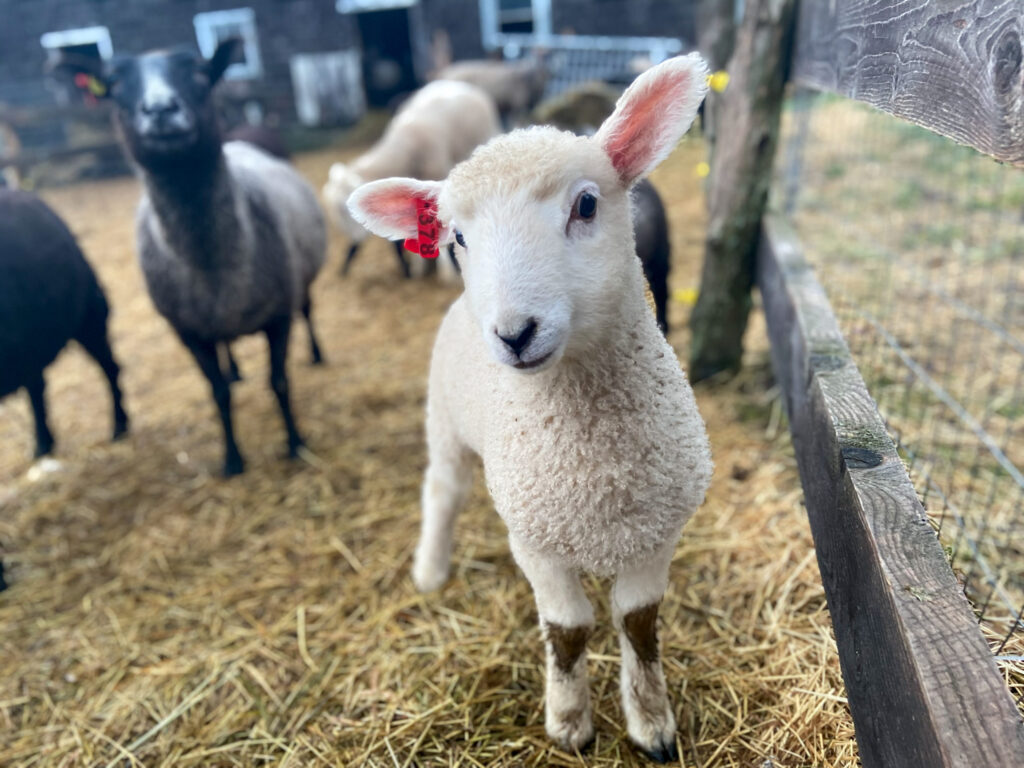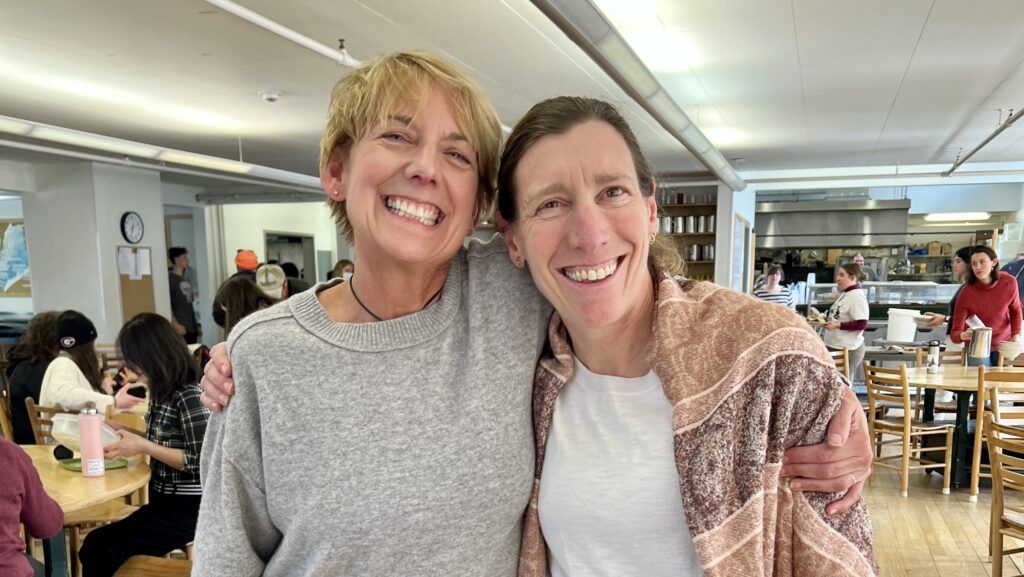It was a crisp, sunny morning in late April when I first set out in a canoe. I had gotten up at 5 am to watch the sunrise with a group for my friend’s birthday, so the energy was positive. I was, however, slightly apprehensive. This was my first time ever canoeing, and I had just learned that our 4-day backcountry expeditions at the end of the semester would all be canoe trips.
That weekend’s adventure was part of outdoor skills. Each Saturday we spend the morning working with OPCs (outdoor program coordinators) learning the various skills we will need for trips during the semester. My group spent the first hour practicing our tarp set-ups (which would in fact come in very handy when it rained on the first day of solos) before moving on to canoeing. We got our paddles and PFDs and headed down to the waterfront. There we entered paddle school: 20 students standing on the steps of the dock while Hannah Marshall demonstrated each stroke – forward, backward, push, and pull – and practicing over the edge.
My apprehension increased when the first pair from the other group returned drenched, having capsized during an intense game of sponge tag. Nevertheless, my partner Eden and I, neither of whom had ever really canoed before, powered forward and climbed into the boat. The first few moments, or really the entire hour we were on the water, was awkward and shaky. Seated in the stern, it was my job to steer our boat up the coast as we fought against the strong incoming tide. The day was gray and the coast was showing the first signs of spring, but I remained largely focused on the task at hand. When the hour was up, I hadn’t gotten the hang of it, and was ready to be back on land. Although nothing particularly dramatic occurred, I wasn’t looking forward to doing this again. My biggest issue with canoeing is that when I’m walking on land and stop, I stop moving; in a canoe, however, there’s no way to prevent your boat from drifting with the tide. This lack of control was frustrating and all I could fixate on.
Flash forward two weeks and we’re back on the water. It was a cloudy morning and the strong wind blew in a cold chill. Given the events of my first time canoeing, I wasn’t particularly excited. But a lot had changed since then: while we were on solos the Outdoor Educators (OEs), who lead outdoor education and backcountry trips, had arrived. I was in a boat with OE Hazel and sitting in the stern again. Nevertheless, I felt significantly more stable working alongside her. As we paddled into the wind, fighting a similar tide as on that first day, we figured out how to communicate with each other and were soon gliding quickly across the water. We talked, laughed, and got to know each other better. I found I was able to focus less on how frustrating canoeing was or how awkward it felt, and notice the new things around me: a conversation with someone I’d never met, or the way my favorite point, Spartina, appears from the water I had watched for hours.
On our return, the strong wind we fought on our way there was now at our backs. We moved easily through the clear water and were greeted by the sun emerging from behind the clouds. The land I had walked on so many times before seemed vaster and greener than I imagined, yet at the same time contained and protected. I too returned to land with a new perspective: I’m still not an expert canoer, in any way stable, or in control of my boat, yet canoeing in the backcountry seems far less daunting when I remember to look up and be with nature and the people around me.
Sophie Greve, The Thacher School, Mount Kisco, NY
Learn more about our outdoor program and backcountry expeditions!

